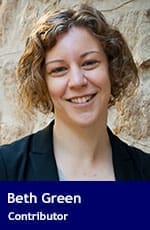 Parents and children should be at the heart of education, not teachers or cumbersome regulation.
Parents and children should be at the heart of education, not teachers or cumbersome regulation.
National School Choice Week, an initiative spearheaded by our neighbour to the south, offers a chance to highlight examples of school diversity already on offer in Canada’s provinces and to renew the call for a national conversation on parental choice.
A recent Cardus policy study highlights the lessons to be learned from education diversity across Canada. But the conversation on parental choice can’t be relegated to a few provinces.
Ontario’s approach to education, for example, is both a great treasure and a missed opportunity. We haven’t been good at telling the whole story and a meaningful conversation about parental choice in Canada needs to be national.
The claim is often made that you can have parental choice or you can have equal access to education but you can’t have both. Saskatchewan, Manitoba, Alberta and British Columbia all beg to disagree. They all offer varying levels of support for independent schools and, as provinces, strive to achieve greater balance between access and parental choice. It would also be a mistake to present Ontario’s public provision as entirely monochrome since separate systems are funded. But there is no funding for independent schools in the province, so Ontario parents don’t have access to the same level of choice offered elsewhere in Canada.
Education in Canada is a provincial responsibility, so provinces and territories can act as incubators for innovation that enhances the quality and delivery of education. Many provinces offer parents some choice within their public education systems. B.C. and Alberta support independent schools within the public system, providing alternatives for parents.
Funding for independent schools in B.C. includes all religious schools. Teachers in these schools must still be certified by the Ministry of Education, but these schools have the freedom to approach the curriculum from their own perspective, while meeting minimum standards in specific areas like English, Math, Science and French.
Parents in British Columbia have also been able to enrol children in schools outside of local catchment areas since 2002.
A 2015 C.D. Howe Institute study credits enhanced school choice with improved reading and numeracy scores in some neighbourhoods. No evidence was found that the policy increased academic inequality between schools, nor did high-achieving students cluster to certain schools.
Alberta also offers many options for schooling – the majority are fully or partially publicly funded. Parents can choose from an impressive list of diverse schools including First Nations, Metis and Inuit schooling, distance learning, francophone schooling, Hutterite colony schools, independent schooling, public and English separate and French separate (mostly Roman Catholic) systems. All of these options are recognized in Alberta’s School Act and, depending on compliance, lead to graduates obtaining an Alberta diploma.
Alberta is also the only province with established charter schools. Charter schools have played an important role in the expansion of parental choice in the U.S. A review by the Fraser Institute on charter schools in Alberta shows that they are innovative in the ways they deliver education and enhance student learning. While charter schools in Alberta are independently operated, they receive public funding. Long waiting lists attest to their popularity. Charter schools in Alberta are designed to provide innovative programs that enhance the quality of education.
Advocates of expanded educational choice in Canada need look no further than our own borders. There are already strong models for provinces looking to provide parents with more educational options. These models should encourage other provinces, like Ontario, to enhance parental choice.
Beth Green is Education Program Director for Cardus. This column was co-authored by Ben Woodfinden.
Beth is a Troy Media contributor. Why aren’t you?
The views, opinions and positions expressed by columnists and contributors are the author’s alone. They do not inherently or expressly reflect the views, opinions and/or positions of our publication.


